More Stories
Are you a turkey pro or cooking it for the first time?
These tips will help you select a turkey and cook it safely for a delicious Thanksgiving meal.
1. HOW MUCH TURKEY WILL YOU NEED?
If you’re trying to figure out how big your turkey should be, Stew Leonard, of Stew Leonard's, says 1 pound per guest is a good general rule. If you want some left overs, go with 2 pounds per person. Here are more tips on how to select your turkey.
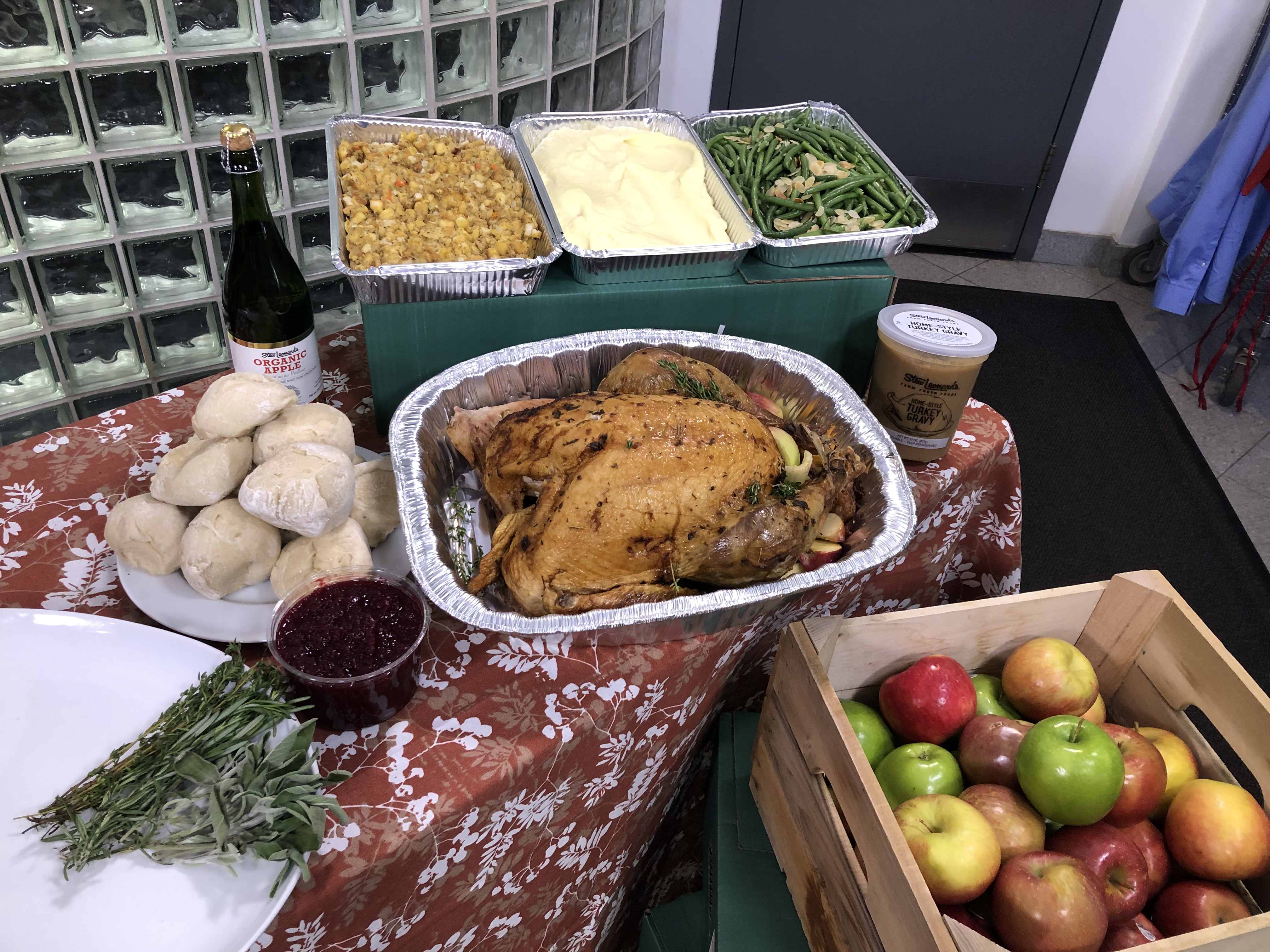
2. HOW SHOULD YOU THAW IT?
There are three ways to thaw your turkey safely - in the refrigerator, in cold water, or in the microwave oven.
REFRIGERATOR
In the refrigerator (40°F or below) allow approximately 24 hours for every 4 to 5 pounds.
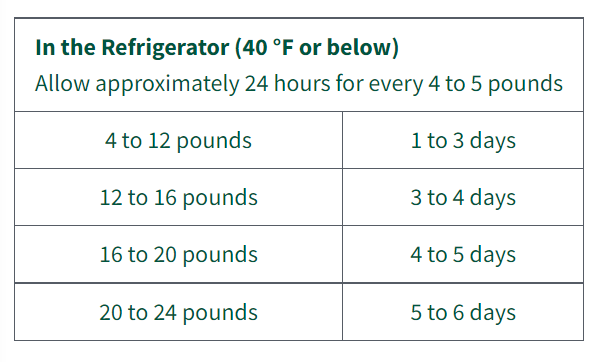
Keep the turkey in its original wrapper. Place it on a tray or in a pan to catch any juices that may leak. A thawed turkey can remain in the refrigerator for 1 to 2 days. If necessary, a turkey that has been properly thawed in the refrigerator may be refrozen.
COLD WATER
In cold water allow approximately 30 minutes per pound.
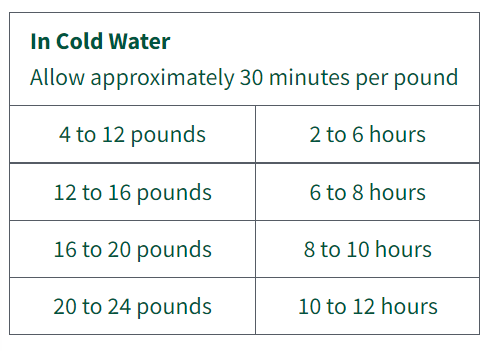
Wrap your turkey securely, making sure the water is not able to leak through the wrapping. Submerge your wrapped turkey in cold tap water. Change the water every 30 minutes. Cook the turkey immediately after it is thawed. Do not refreeze.
MICROWAVE
Check your owner's manual for the size of turkey that will fit in your microwave oven, the minutes per pound and power level to use for thawing.
Remove all outside wrapping.
Place on a microwave-safe dish to catch any juices that may leak.
Cook your turkey immediately. Do not refreeze or refrigerate your turkey after thawing in the microwave oven.
Here are more tips from the U.S. Department of Agriculture.
3. HOW LONG SHOULD YOU COOK IT FOR?
Zorn’s of Bethpage says if your turkey is under 16 pounds, cook it for 17 minutes per pound at 350°F.
Use the timetables from the USDA below to determine how long to cook your turkey. These times are approximate. Always use a food thermometer to check the internal temperature of your turkey and stuffing. The minimum internal temperature should reach 165°F for safety
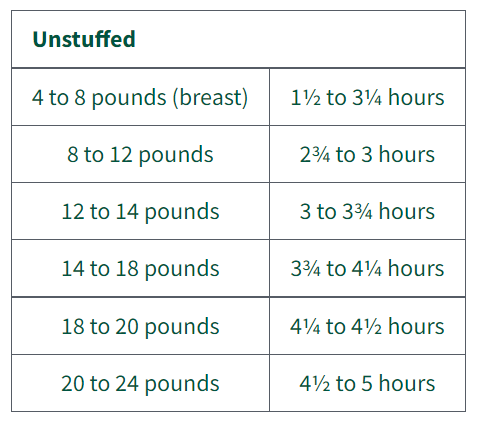
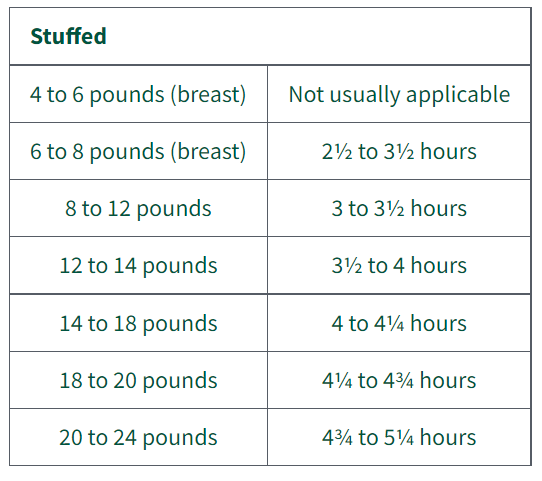
4. HOW SHOULD YOU COOK IT?
There are many ways you can do it, but Zorn's of Bethpage recommends that you cook your turkey breast down, only flipping it when there are 20 minutes left in the cooking time, that way the juices from the thighs and legs are going to constantly baste the breast.
Put seasoning all over the turkey. And while it is cooking put tin foil to tent it, so it doesn't overcook.
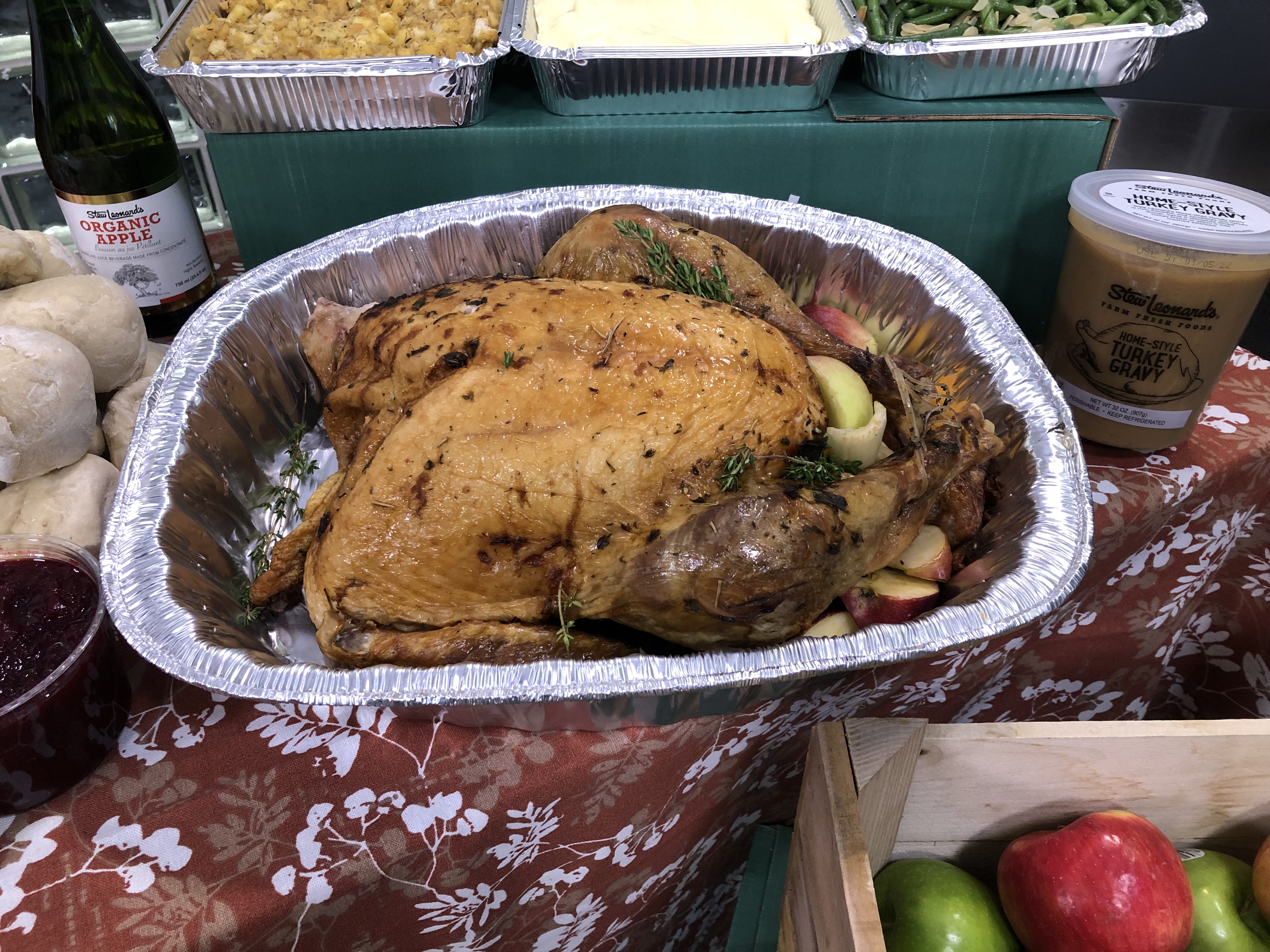
5. WHAT ABOUT THE STUFFING?
Cooking the stuffing inside the bird has the advantage because the turkey juices will go into the stuffing, making it more delicious. Zorn's of Bethpage recommends one pound of stuffing, for every five pounds of meat.
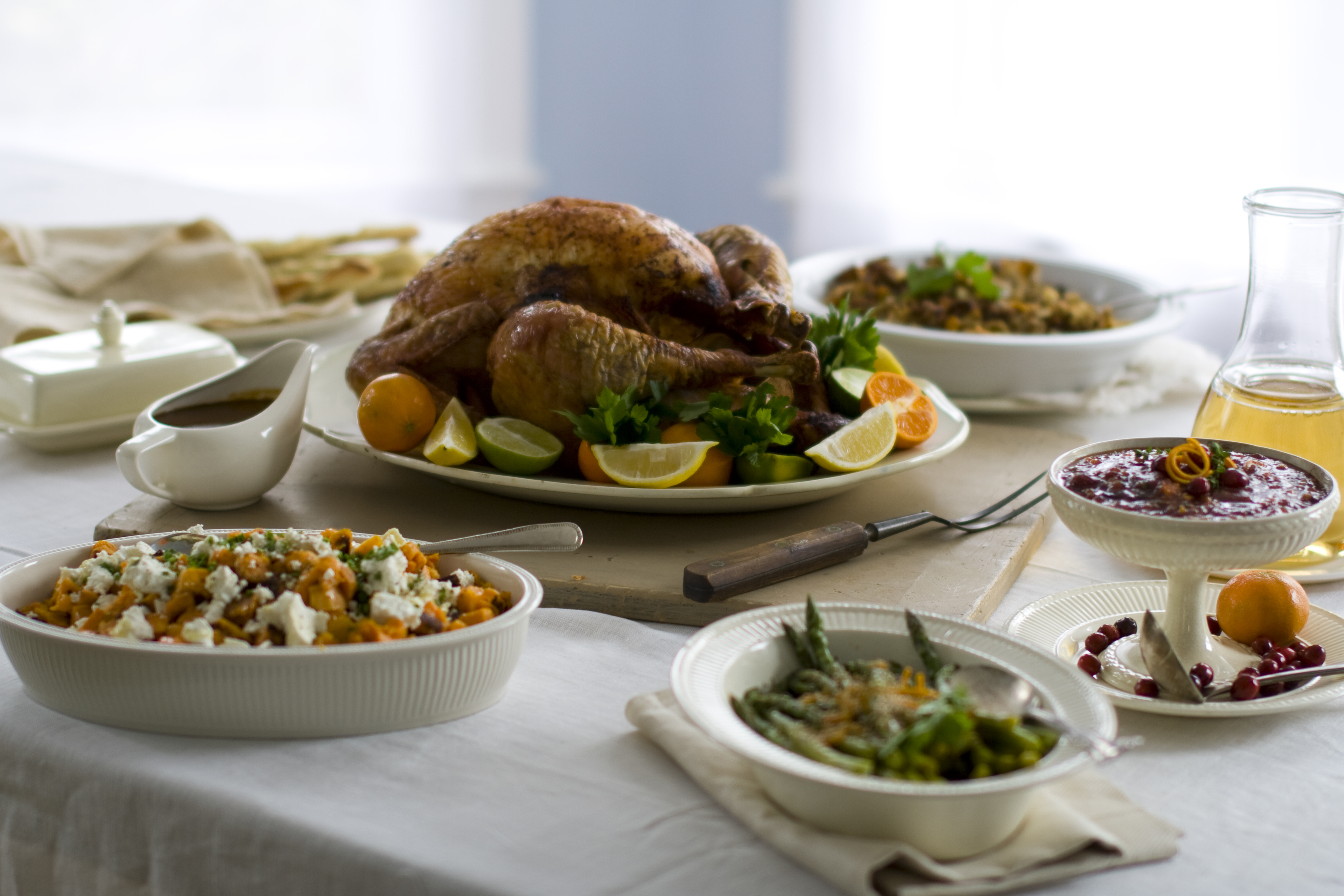
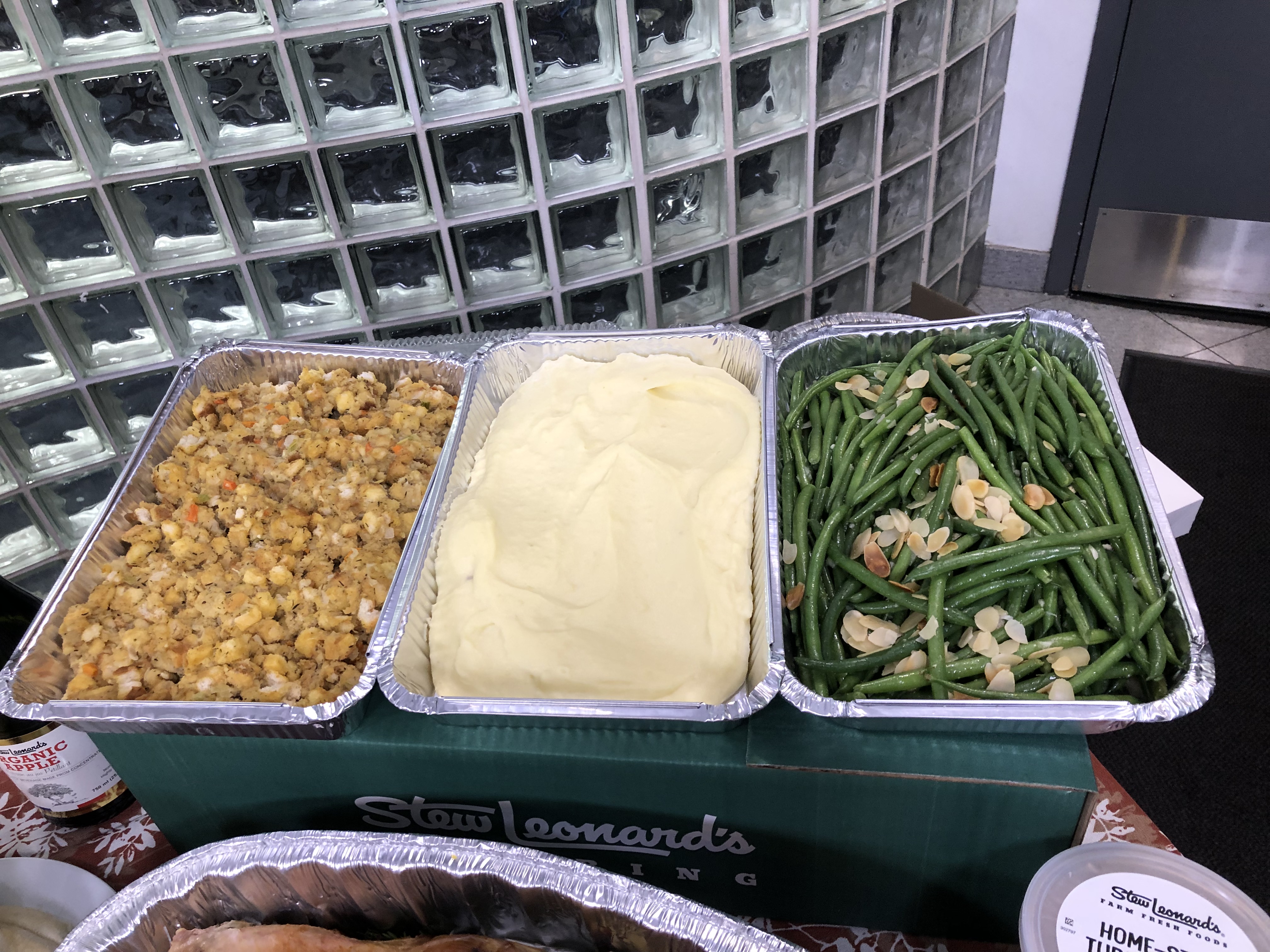
6. HOW TO CARVE
Check out this step-by-step guide on how to easily carve your turkey from Vincent Olivieri, of Uncle Giuseppe's Marketplace.
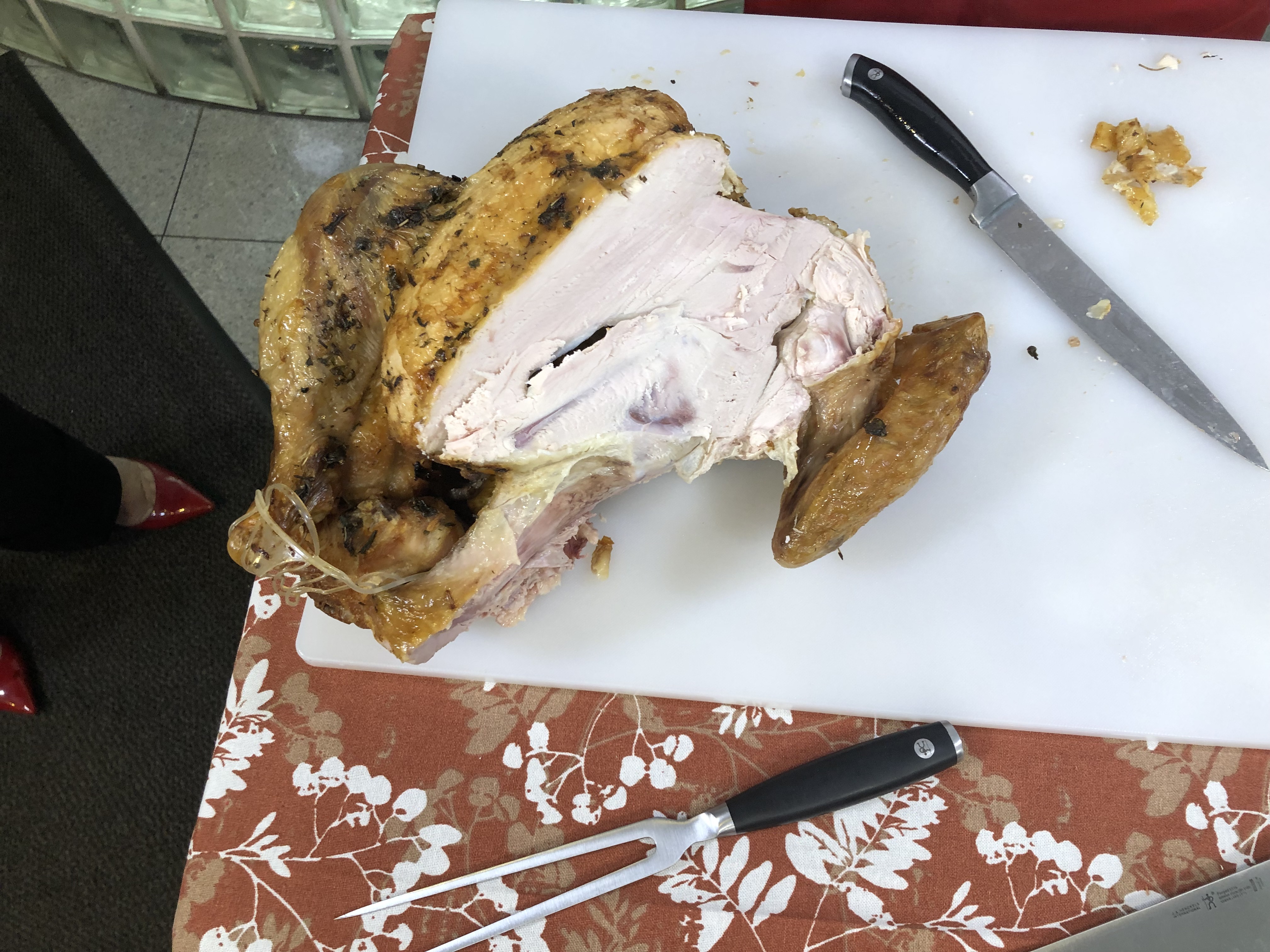
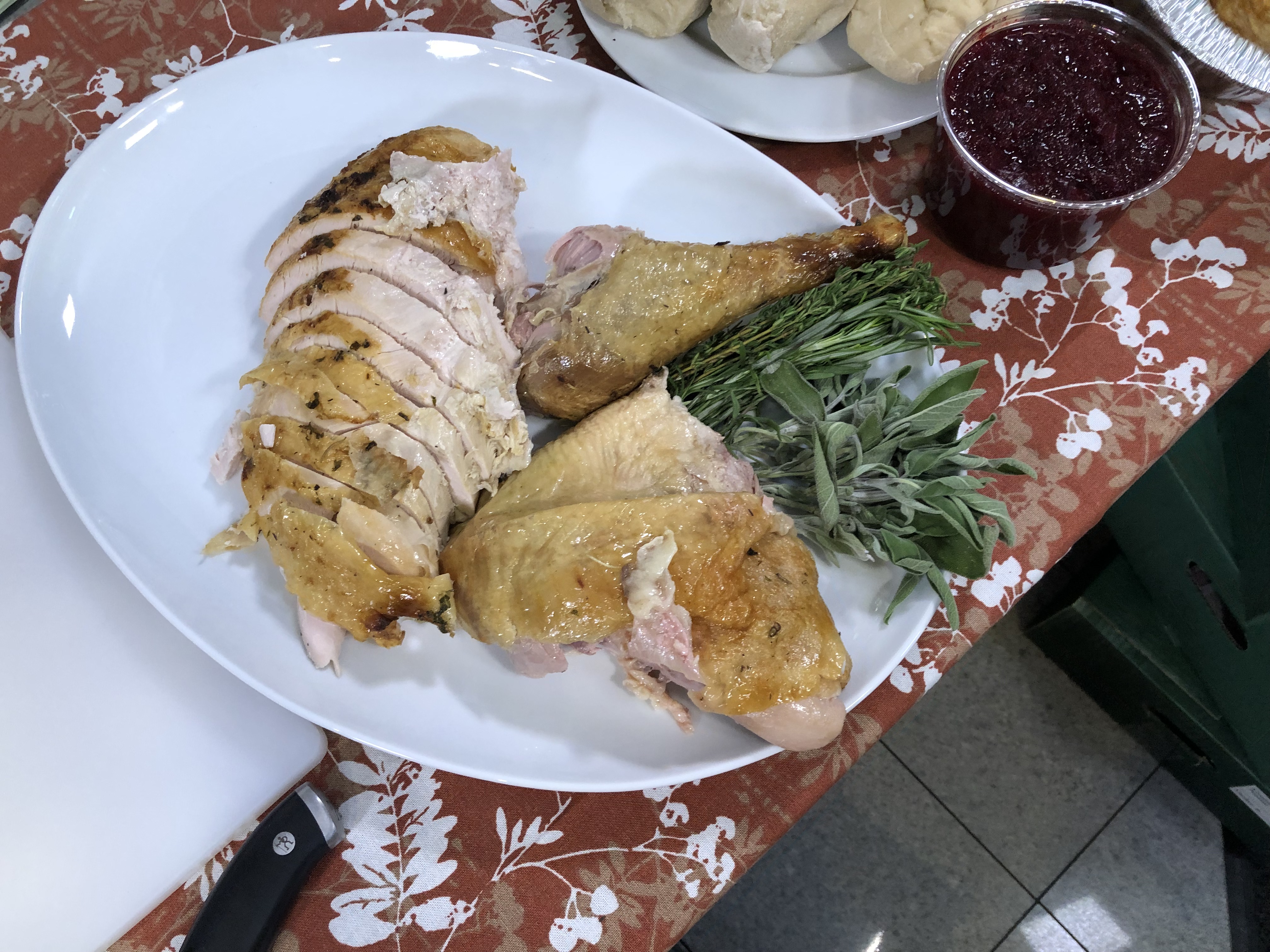
7. FOODBORNE ILLNESS
Follow the USDA tips below to avoid foodborne illnesses:
Keep bacteria out of your kitchen by washing your hands before, during and after you handle raw food. Make sure food preparation surfaces and utensils are clean.
Keep raw meat and poultry separate from produce and cooked foods by using different cutting boards.
Use a food thermometer to ensure your turkey is safe to eat. The recommended internal temperature must reach 165°F in three places: the thickest part of the breast, the innermost part of the thigh and the innermost part of the wing.
Your meal on the dinner table has only two hours before it becomes unsafe, and bacteria start to multiply. Make sure you put out just enough food for your guests and place the rest in your fridge in shallow containers.
8. COOKING SAFETY
The Firemen’s Association of the State of New York and the National Fire Protection Agency have some helpful tips to prevent fires while cooking.
Remain in the kitchen while cooking. Keep anything that can catch fire away from it, and turn off the stove when you leave the kitchen, even if it’s for “just a second.”
Whether you’re simmering, boiling, baking or roasting food, check it regularly and use a timer to remind yourself that you’re cooking.
Have kids and pets remain outside the kitchen area while food is being prepared.
Make sure your smoke detectors are functioning.
Deep-frying turkeys is extremely dangerous. Turkey fryers can easily tip over, a partially frozen turkey can cause hot oil to splatter. Check out more fire safety tips here.
More from News 12
1:44

Refund delays frustrate Kings Park band families as district plans new trip
1:45

After son’s carbon monoxide death, Bohemia family urges awareness
2:05

STORM WATCH: Overnight rain ends early Wednesday; more rain late-week
1:42

Oceanside students learn stage combat from a Broadway pro
2:06

'Nothing short of a miracle.' Two survive crash landing into icy Hudson River
0:40
